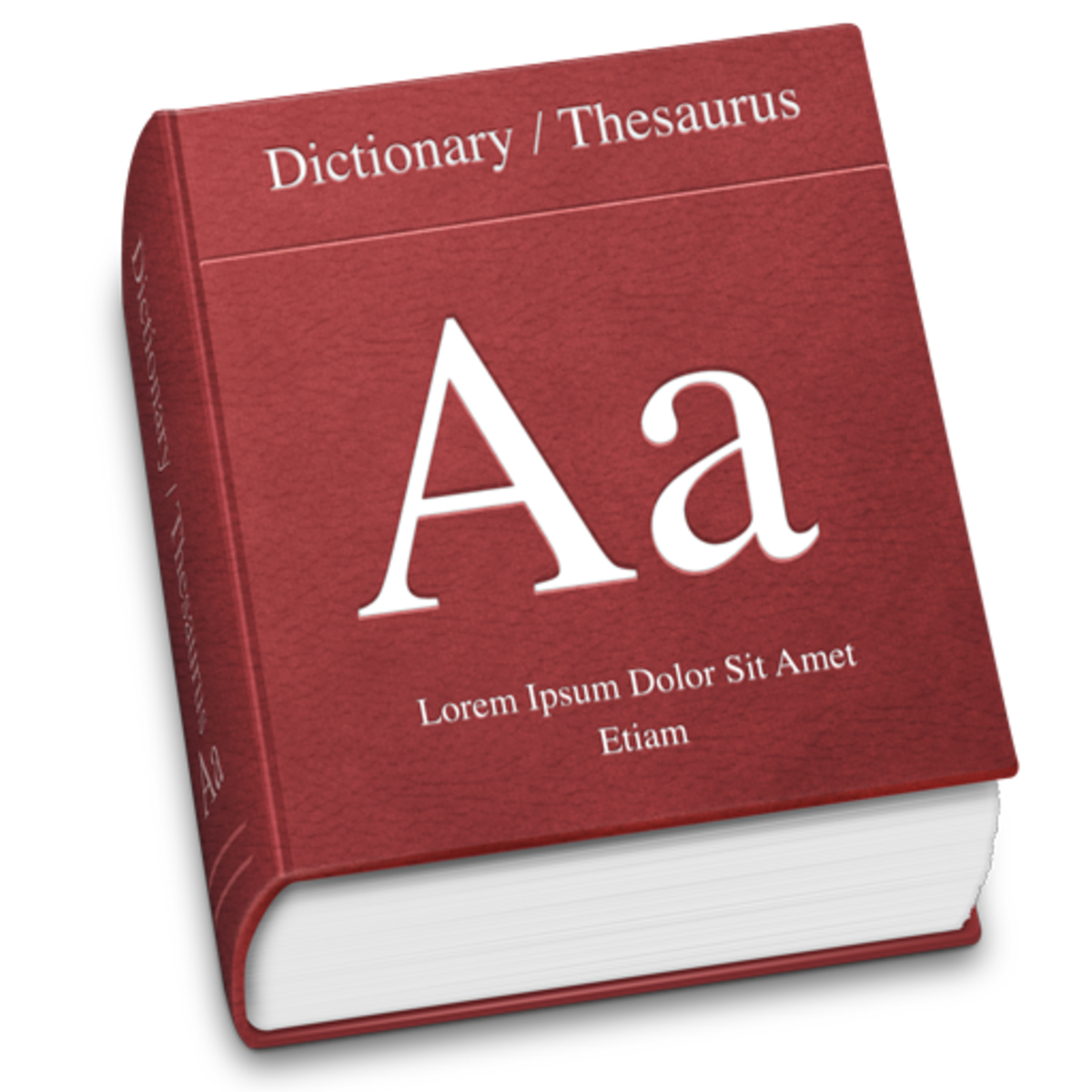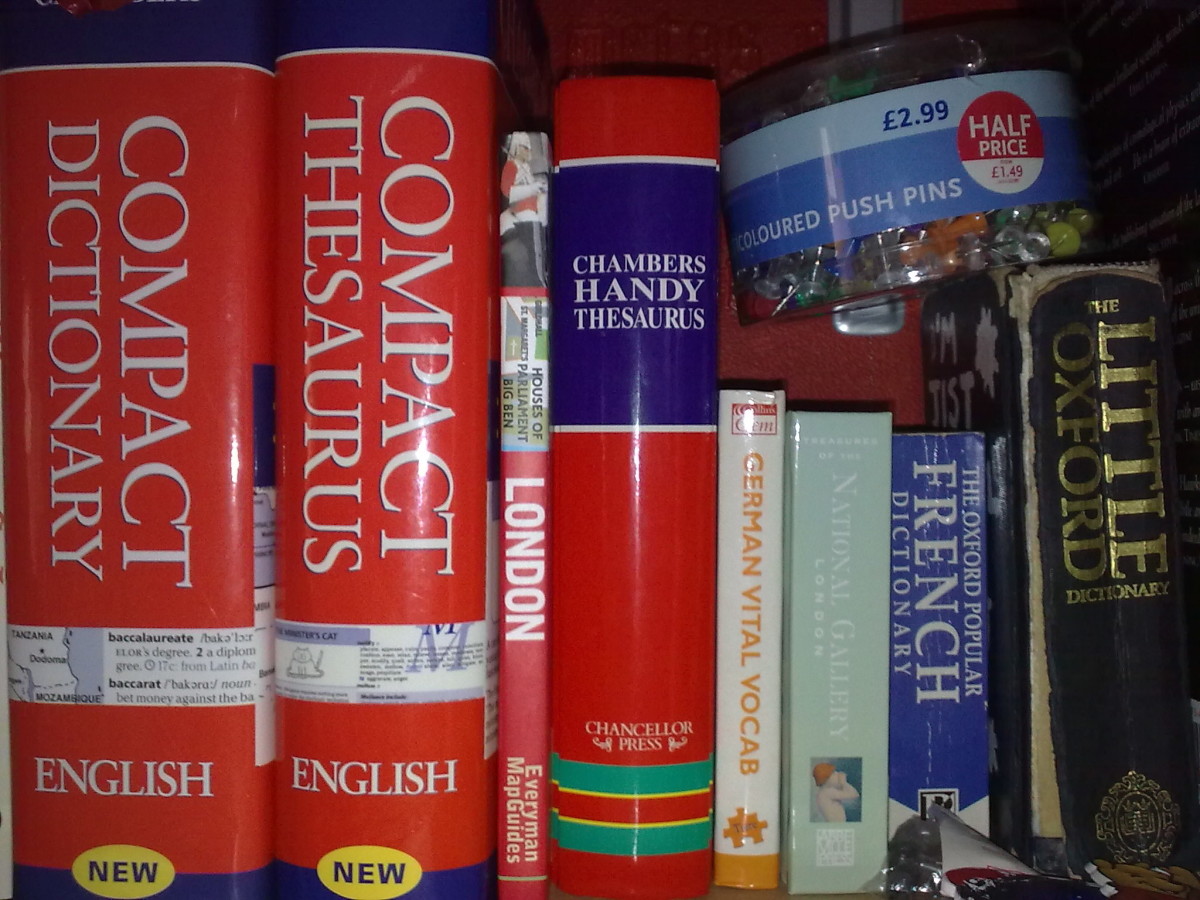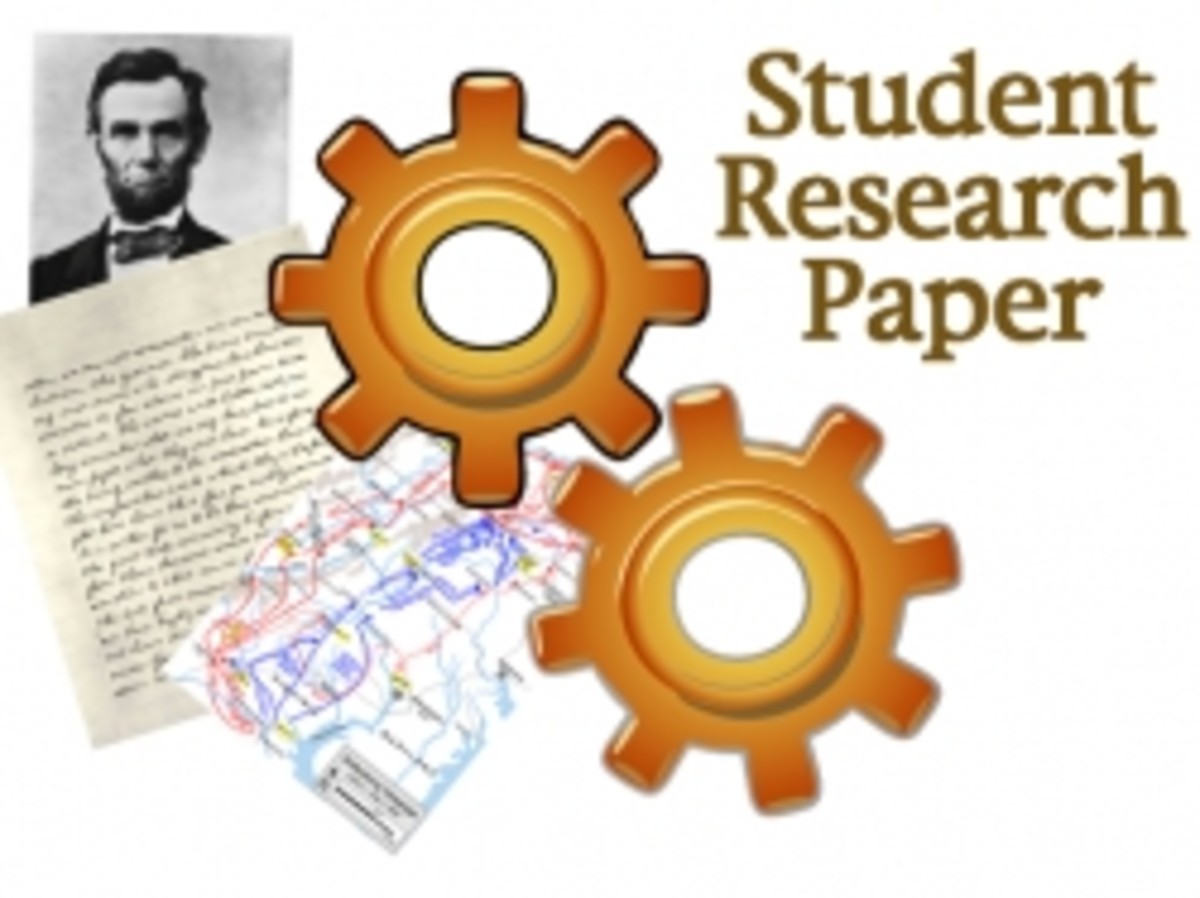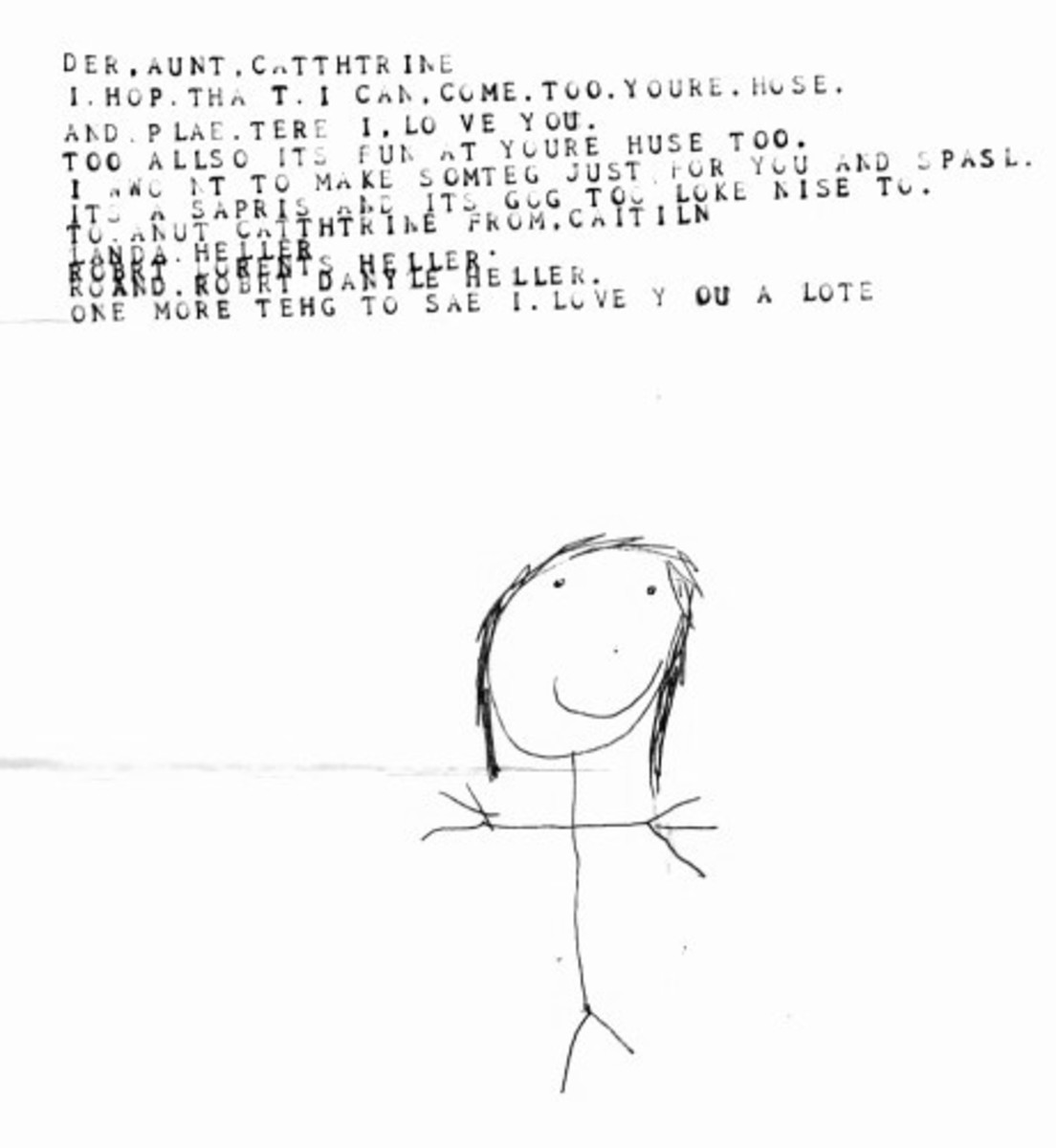The Importance of a Good Dictionary

Have you ever noticed how some people, who seem very witty and intelligent in their writing, can surprise you with their limited vocabulary when they speak to you in person? Not everyone who is so talented at word usage is so handicapped of course - Stephen Fry is the perfect example of a human dictionary and thesaurus (of course, he's not just wordy, he's very properly clever too).
Well, I am definitely one of those people who will disappoint in real life. In my writing I can turn a nice phrase now and again, but I have usually pinched it from somewhere - my name of Lady Wordsmith is rather fallacious really, and I gave myself the title as more of a target than a prize earned on merit (look out for future hub, 'Pretending to be Clever - how I do it'). In real life I am actually much less verbose. Well, no, actually, that's not true - I am very talkative, but most of what I say will bore you to tears and you will wish you hadn't asked. I am very well used to feeling chagrined when my powers of recall let me down in a conversation, and I am left stumbling over my words. I am sure many writers experience this same agony. I would imagine that it is similar to the way a stand-up comedian feels when a fan asks him or her to tell a joke, and he or she cannot immediately think of a good one, so he or she plumps for 'what's brown and sticky? A stick.'
But hey, don't feel sad for me, it does not bother me at all, because I am not interested in becoming a professional talker, I aspire to be a writer. And if I can't astound with my extemporaneous wit, it really does not matter because I am just better at something else. This is fine. Everyone feels jealous of the popular person in the class who can have everyone rolling about the aisles, and be the darling of staff and pupils alike. But not all of us can be that person.
Back to the topic in hand. I read once, somewhere, that an average novelist will discard eighty percent of their writings. (I don't really do that, as you can tell, I barely take the time to read through - I have already told you several times that I am lazy.) So it stands to reason that much of what they wrote was not worth sharing. This is heartening. It means that they write a load of rubbish, just as the rest of us do. Take that thought, cherish it, and allow it to give you hope and confidence. If eighty percent of what you write is awful, you are probably going to be a successful novelist, since it must follow that twenty percent of your work is excellent.
But how to make every word count. As a writer, and not an off the cuff public speaker, I have the luxury of more time. I can take as much of it as I need to find exactly the right word, and to explore different meanings. At first I may not know exactly what it is that I want to say, but I can flick through a thesaurus and the thing I am trying to say will eventually become clear to me. It can be tremendously difficult to write without a dictionary and a thesaurus. There can be a lot of frustration and hair pulling, when the right word lurks just on the periphery of my consciousness and try as I might I cannot make out its form. It eludes me for days sometimes. And then I might remember that there is such a thing as a dictionary, and I will find the word in moments. Why waste all of that energy, and build up all of that tension, when there really is no need. The solution is there, and it is not cheating. You do not need to feel as though you are in an exam, and that you are being tested. No-one will think any the less of you if you have to look something up because you can't quite remember it properly.
I can understand the feeling that some writers will undoubtedly get, that somehow, using a dictionary (and especially a thesaurus) is like giving in. You might feel that if you have to resort to them you are not clever enough, you don't know enough words so there's no point in carrying on, you're not really worthy of being a writer because so many other people know so many more words than you do. But this is a nonsense. Not every new word you read and use will stick (unless you do have a photographic memory, in which case, go away, because I am far too jealous to be bothered with you), but some of them will. And some of them may seem to disappear, but they will nudge their way to the front of your mind when you need them. That's a lovely feeling, suddenly remembering a good word, and being surprised at yourself for being so brainy. Enjoy that, and let it give you a boost. I did it just now with the word 'extemporaneous'.
Some people like to actually read the dictionary. This is something that I think you may need to have quite a lot of time for, because you can really get lost in there. You might start out at the As, but you will quickly find your mind starting to wander, and new words will pop up and you will have to turn to them and find out what they mean, and the whole thing can really get out of hand. But it's a good exercise when you've nothing in particular to write and have a bit of spare time. Generating a 3-word-exercise from findings in the dictionary is a nice one to try - just pick any three random words, and write a little piece that includes each word. This exercise is lovely, as it allows your mind to go to all kinds of places, you really get to explore your imagination.
I am happy to admit that I use the dictionary every single day. I use the thesaurus about twice as much. Because I am lazy, and cannot be bothered to go to my bookcase and pick up a book, I tend to use the one that came with my MacBook. It's a very, very good one, and has never let me down yet. But I do also have a nice big Chambers dictionary and thesaurus. The dictionary is useful because it has ideas for travel games in it, to play with the children on long journeys. These games do not help me to become a better writer at all, but it's useful for you to know if you are thinking of choosing a new dictionary. It might influence you to stay well away from the Chambers, and go for something a little more grown up. The Oxford was always a good bet when I was at school. I'd recommend that one. But as with anything, dictionaries are about personal choice and taste. You probably need to go to a book shop and browse a good bit, because buying one online will not allow you to really find out whether the dictionary you are choosing will suit you. It might seem silly to say this, but not all dictionaries are the same - the layouts are different, the styles are different, and even the language used in the definitions is different. You may want definitions with just a very brief summary, or you may require and desire more detail. Personally, I prefer a lot of detail, because extra descriptions allow pictures to form more clearly in my head.
There are also different kinds of dictionary. Foreign language dictionaries may be useful - you may not be learning to speak a new language, but you could at some point in a story introduce a character who is doing just that. Also available at the moment are a range of dictionary-style books that cover clichés, old sayings or forgotten phrases. These can be extremely useful, but need to be used carefully. If, for example, you are a young writer and writing a character who is elderly and who uses phrases that you have never heard of before, you might need to check that the sayings you choose are appropriate.
A dictionary is a wonderful thing, and it is not just there to help teenagers get good grades in their Literature exams. It is there for you, as a writer, to enable you to find exactly the right words exactly when you need them.








